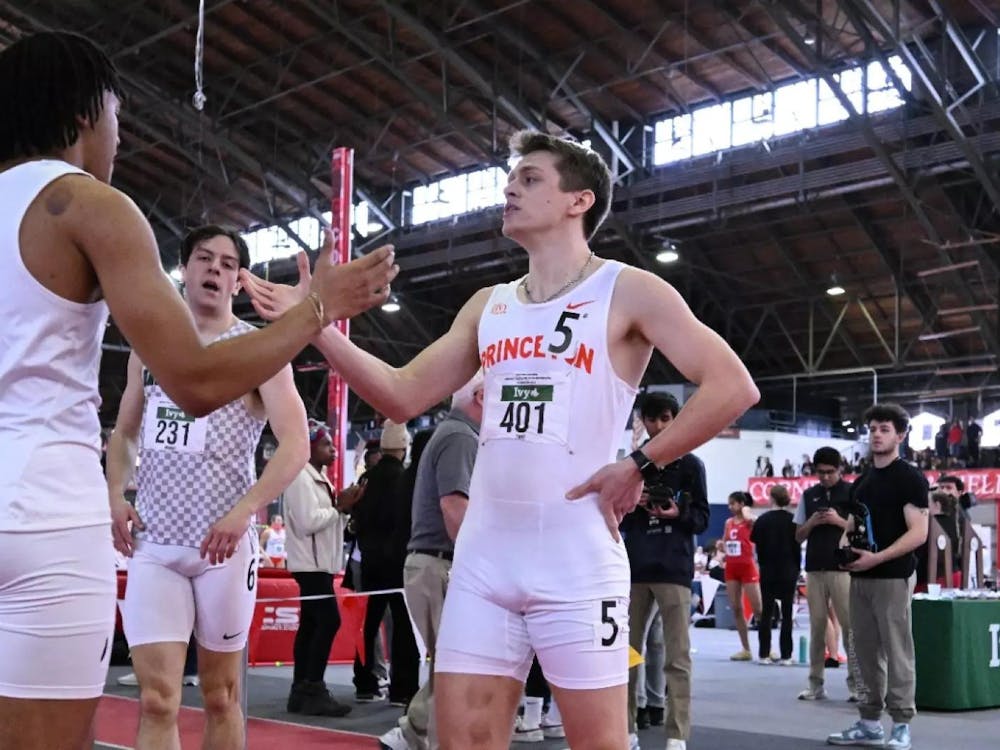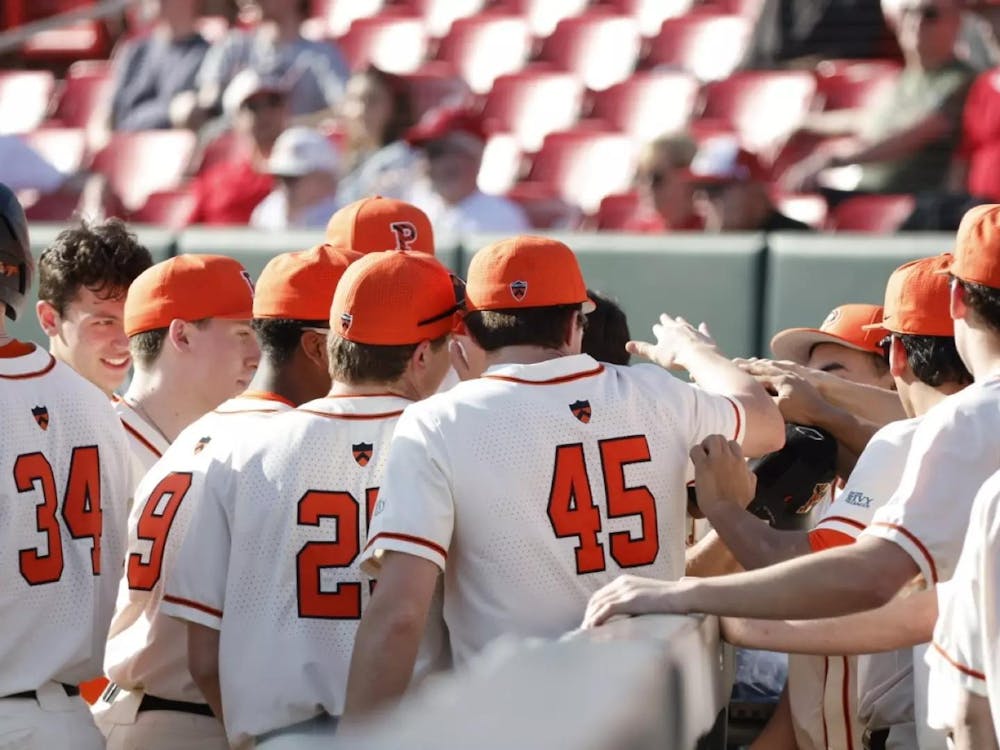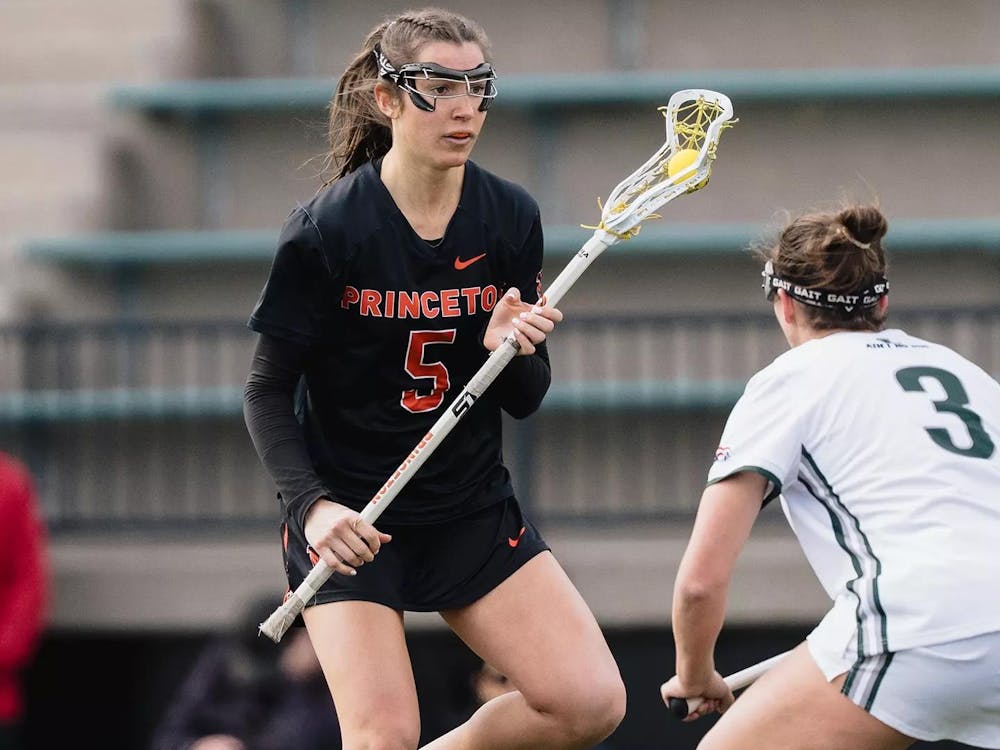When members of Mexico's Olympic team march through the stadium this evening for the Opening Ceremonies, the team will be two members short.
Those two members are Mariana Altamirano and Princeton junior Carola Ibanez, who were supposed to have made up one of the two Mexican women's open two-person sculls at the Games.
Instead Ibanez is back in school, looking forward to a delayed junior year.
Ibanez's story starts before her freshman year when she saw the cover of the admissions booklet with the Princeton crew team rowing down Lake Carnegie. She knew that she wanted to be on that boat when she came to school.
In a sport that sees many of its team members quit when they realize the hard work and long hours involved, Ibanez looked at crew as a challenge.
"Ever since the beginning, Carola has been a driven athlete," women's head coach Lori Dauphiny said.
Sophomore year, Ibanez moved up to the varsity program and experienced her first thrill in rowing when the team advanced to the national championships and she was exposed to the top level of American rowing for the first time.
"I saw all the best rowers in the country and just became more excited about the sport," Ibanez said.

After returning to her native Mexico City in the summer of '99, Ibanez took an internship with an investment banking firm and spent her mornings leisurely rowing on one of the many canals surrounding the city. Ibanez kept up the relaxed schedule until one morning after practice when she realized that with a little extra effort she could achieve a measure of greatness.
"I knew I was good for Mexican standards and I realized if I put in that extra effort, I could qualify for the Olympic Games," Ibanez said. "It seemed like a once-in-a-lifetime opportunity."
So Ibanez made the decision to drop everything and try to make it to Sydney. She took a year off from school and began to prepare for the Mexican Trials.
She joined a club that trained on the course that was used for the 1968 Olympic Games, which took place in Mexico City. She started going into heavy training to not only get into good condition, but also learn the technique of the scull in which the competitor rows with two oars instead of only one. Ibanez had the help of Russian coach Nicolai Chupryna as she worked toward her goal of making the national team.

"He just put fire under me," Ibanez said. "I just kept improving and improving every day."
Ibanez came to the Trials in January brimming with confidence and took home first place and the chance to row with her friend, Mariana Altamirano, in the two-woman boat. After two months of training, Ibanez and Altamirano won the Pre-Olympic Games over the rest of Latin America to earn a berth in the Olympics as one of the seven Mexican boats to make the Games.
This is when the tide turned on the junior. After becoming a member of the national team, Ibanez had to join the Mexican program. In doing this, she was forced to abandon Chu-pryna in favor of the Mexican coach, Tomas Martinez, a man Ibanez found inadequate for the job.
Claiming that their fitness and technique had declined under Martinez's supervision, Ibanez and Altamirano jumped away from the Mexican Rowing Federation and went back to work with Chupryna.
Ibanez said this move angered the national sports authorities. Still, the duo refused to acquiesce.
"We went to the radio people and the rest of the media to make our voices heard," Ibanez said. "We had made it to the Olympics, but we had no coach."
Ibanez said the Mexican Rowing Federation subsequently made life difficult for her and Altamarino.
Ibanez and Altamarino said that upon arriving at the World Cup in Italy during the spring, they found out that the national team had not sent a boat for them. The two went out and found a boat to race in, but the animosity between the two groups continued to escalate.
"We knew they weren't happy with us, but we didn't think they could really do anything," Ibanez said. "We earned our spot into the Olympics."
After the team completed its tour of Europe and the United States, Altamirano and Ibanez returned to Mexico, left the national team and started training with Chupryna. That is, until the day in late July when the two arrived at practice only to be shown the local newspaper.
"We were given an article that said, 'Carola and Mariana have been banned from Olympic Games,' " Ibanez said. "We didn't think it could be true."
According to Ibanez, the Federation had left the two off the final team on the last day to turn in the team roster. Because the final deadline had passed, the two had no means of recourse against the authorities.
Ibanez said she is not bitter and angry about the experience. Instead she looks at positive aspects of her year away from Princeton.
"If I had the choice to do it over again, I wouldn't change a thing from the beginning," Ibanez said. "I learned a lot about myself, the world and my love of rowing. I wouldn't have said or done anything differently.
"I got to go to Germany and Italy and compete against the best rowers in the world. On one side was China and on the other Germany but we were all even at the starting line. That's just a dream come true."
After one bad experience, it would be understandable for Ibanez and Altamirano to be disillusioned by the whole experience and to avoid having anything to do with the Mexican Rowing Federation. Instead, Ibanez wants to bring Altamirano to the States so they can continue training for their native Mexico.
"We were young. I'm only 22 and she was 19. We know we'll be back in 2004 if we keep trying," Ibanez said.
"If you're good enough, no one can keep you down."







